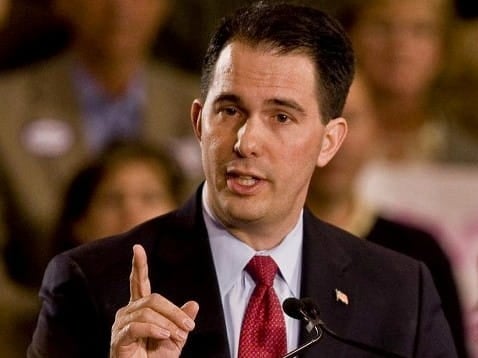But if the boos that surrounded God’s return are any indicator, this might well be the last time He gets invited. And it likely won’t be the only setting where He’s deemed unwelcome.
Delegates to the Democratic National Convention in Charlotte voted three times on an amendment package that would restore both a reference to God in the platform and recognition of Jerusalem as Israel’s capital. All three votes were too close to call, but chair Antonio Villaraigosa called the third one for the president anyway. A chorus of boos filled the hall as God and Jerusalem were reseated in the text.
The outcome marked a thin victory for those Democrats who believe their party should openly and collectively acknowledge responsibility to a God who has blessed humanity and America in particular. The ethos is scriptural: from those to whom much is given, much will be expected.
Momentum, however, is not in their direction. The Democratic Party increasingly grounds its sense of responsibility in secular humanistic principles, which are seen as more inclusive than God. This evolution has played out in platforms of recent years and in telling moments of this year’s convention.
For contrast, look back eight years to 2004, when then-Senator Barack Obama assured DNC delegates, “We worship an awesome God in the blue states.” That year’s platform described America as “one nation, under God.” The environmental mandate was framed as coming from above: “God gave America extraordinary natural gifts; it is our responsibility to protect them.” It acknowledged the Biblical vision that fueled the Civil Rights movement and ongoing struggles for human rights: “each of us should be as equal in the eyes of the law as we are in the eyes of God.” Democrats explicitly understood those in power to be answerable to a God of justice, compassion and high expectations.
All these references to the Almighty have since disappeared. There’s now a single mention: “We need a government that… gives everyone willing to work hard the chance to make the most of their God-given potential.” It’s still a powerful idea, echoing the Declaration of Independence, which says all men are “endowed by their Creator with certain unalienable Rights, that among these are Life, Liberty and the pursuit of Happiness.” But the party is bending to pressure from nonbelievers, whom polls show to lean overwhelmingly Democratic and who insist that only secular language can be inclusive.
“Inserting god into parties' platforms is unnecessarily divisive,” said a tweet from the Secular Coalition, a lobbying group for nonbelievers. The group promptly added: "’God-given’ didn't add anything to the platform except pandering and a word that excludes millions of nontheists.”
As members of a big-tent party that courts minorities, Democrats are sensitive to charges of being non-inclusive. Excluding anyone is de facto unacceptable. But does pluralism allow for more than one type of expression? Can’t the idea of one Creator be inclusive?
The party ultimately must decide whether to defend the notion that God blesses everyone, even those who don’t believe in God, and endows everyone with capacities that must be honored. After all, the logic goes, they aren’t man-made. They are sacred. And what God has made, let no one put asunder.
At this convention, we’ve heard a party struggling to figure out where, if anywhere, God fits in public life. For now, clergy give invocations and benedictions among delegates. But if God-talk is deemed inherently non-inclusive, then these too will be secularized. If delegates next time prevail with a “Godless” party platform, then “Godless” Congressional and Inaugural invocations can’t be far behind. The powerful might still be answerable to a higher authority, but public life won’t reflect that truth in rituals designed to bring it to mind. That will make it easier to forget.
Individual speeches have shown people of faith have a voice in the Democratic Party, but few have expressed confidence in a deity who’s active in human affairs. Michelle Obama explained Tuesday how her husband makes a high-stakes decision. She suggested he gets advice from all types of people. She notably didn’t mention prayer or God.
“When it comes time to make that decision, as President, all you have to guide you are your values, and your vision, and the life experiences that make you who you are,” Michelle Obama said.
What’s evolving, it seems, is a party that explicitly embraces faith, not God, as an important force. “Faith has always been a central part of the American story,” the 2012 Democratic National Platform says, “and it has been a driving force of progress and justice throughout our history.”
Note: faith, not God, is identified here as a driver of progress. People of faith tend to see it the other way around: God acts, inspires and deserves glory; faith merely testifies to what God has done. Religious Democrats will need to reckon with the prospect that their party does not see it as they do.
That’s not the only reckoning left to do. As Democrats weigh whether to drop God from their platforms in the future, they’ll need to assess whether the limited language of secular humanism is truly the most inclusive – or the most fitting.
To celebrate faith without acknowledging God would remove a professed awareness of common grace and collective higher responsibility. That might seem strange, coming from a party that emphasizes the need for more accountability, not less, among the powerful on Wall Street, in corporate board rooms and across the aisle. Perhaps Democrats will decide once again that God is worth keeping and handle the boos in stride.
G. Jeffrey MacDonald is a journalist, ordained minister and author of Thieves in the Temple: The Christian Church and the Selling of the American Soul . For more information visit www.thievesinthetemplebook.com and www.gjeffreymacdonald.com.

